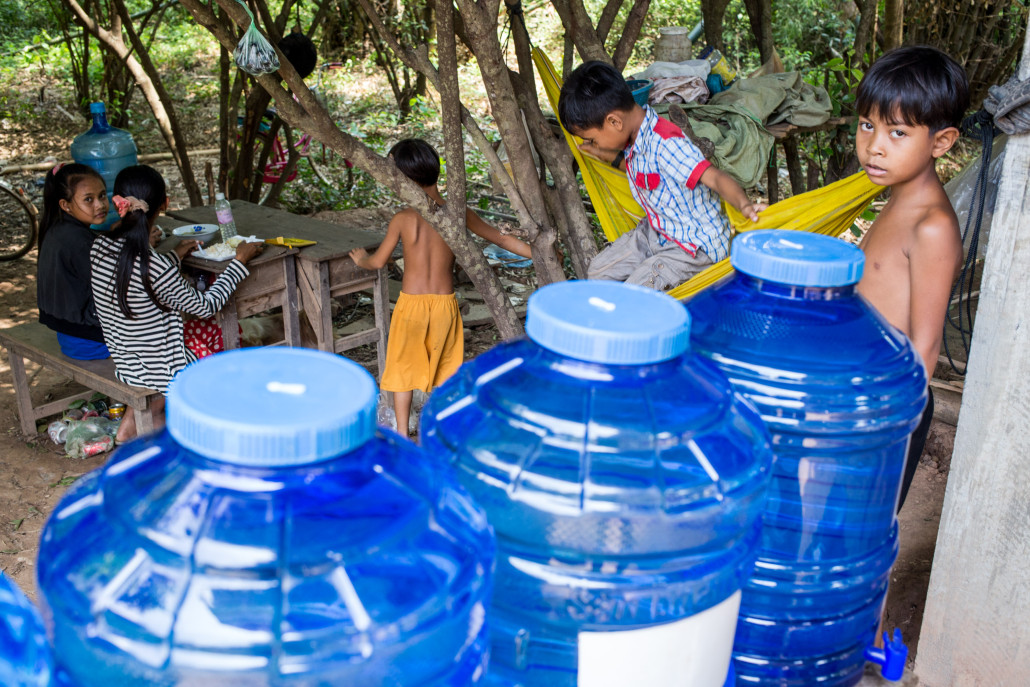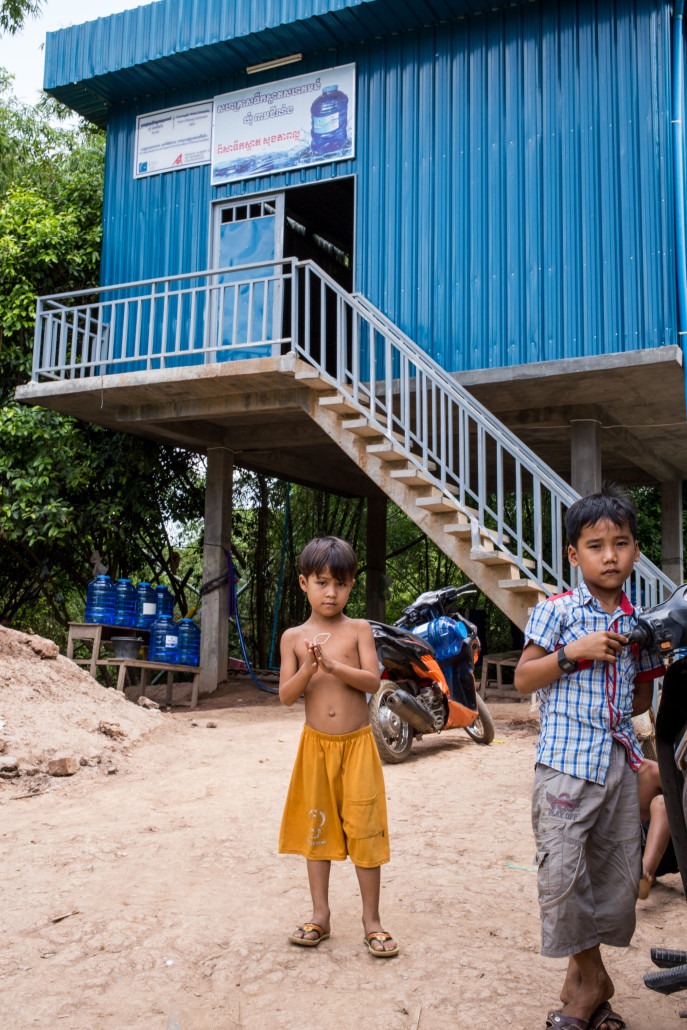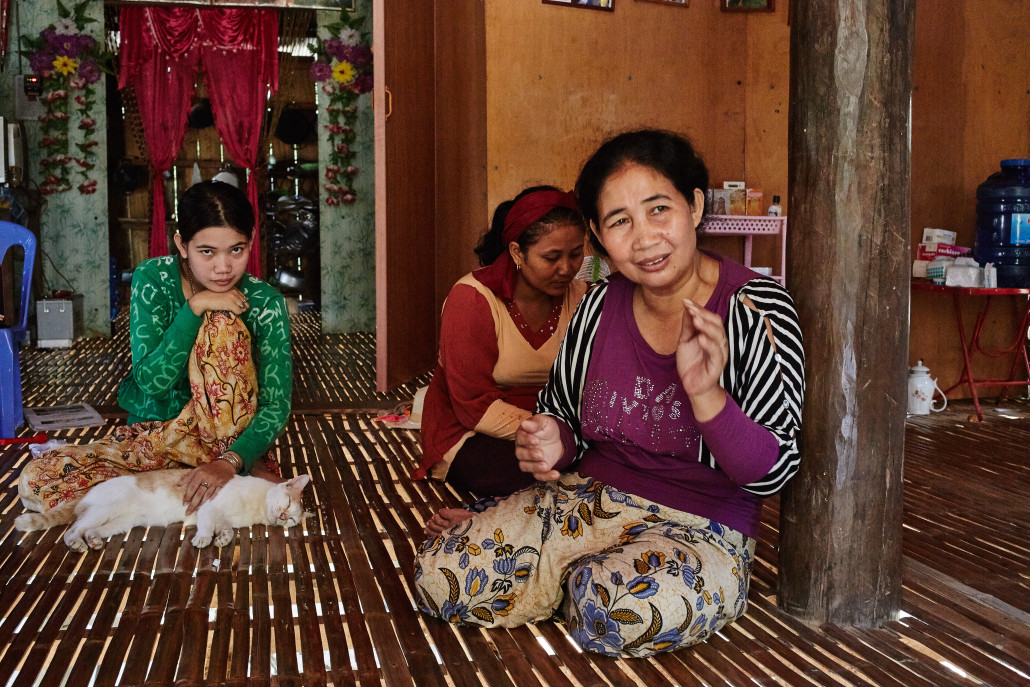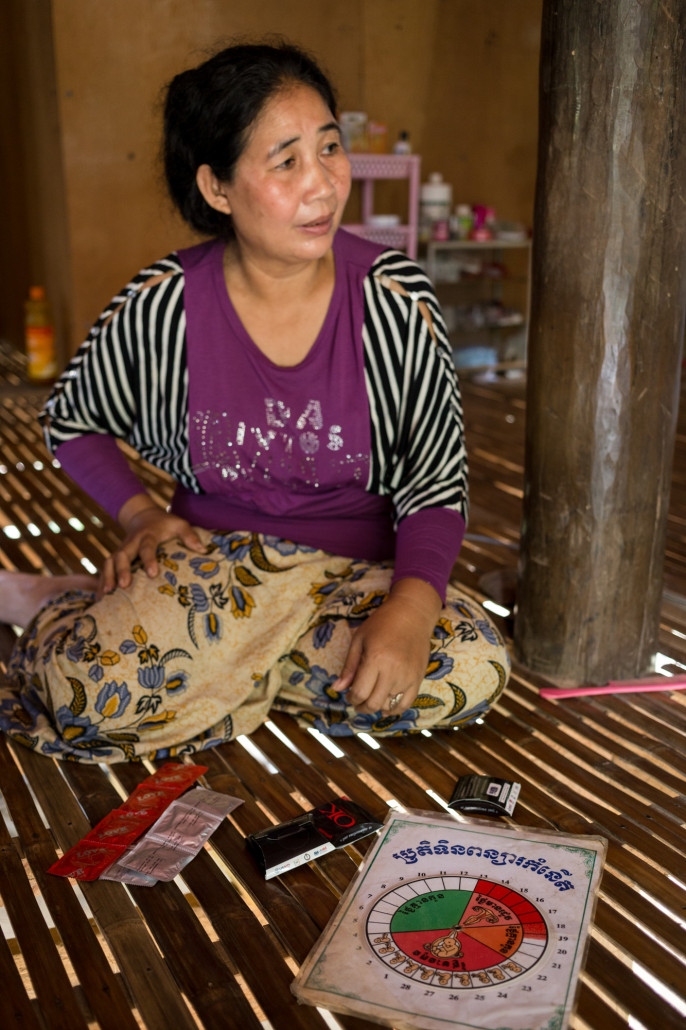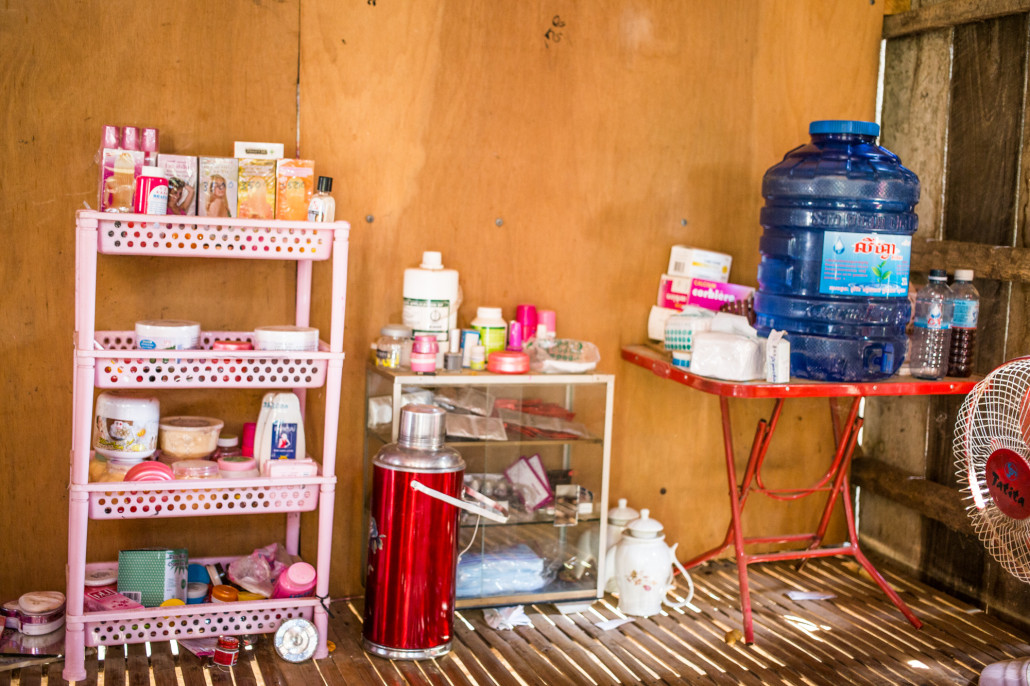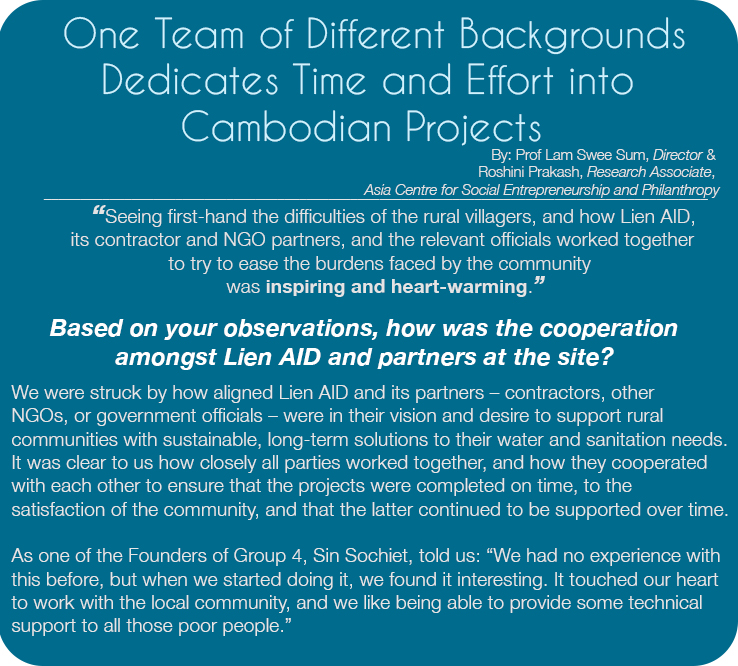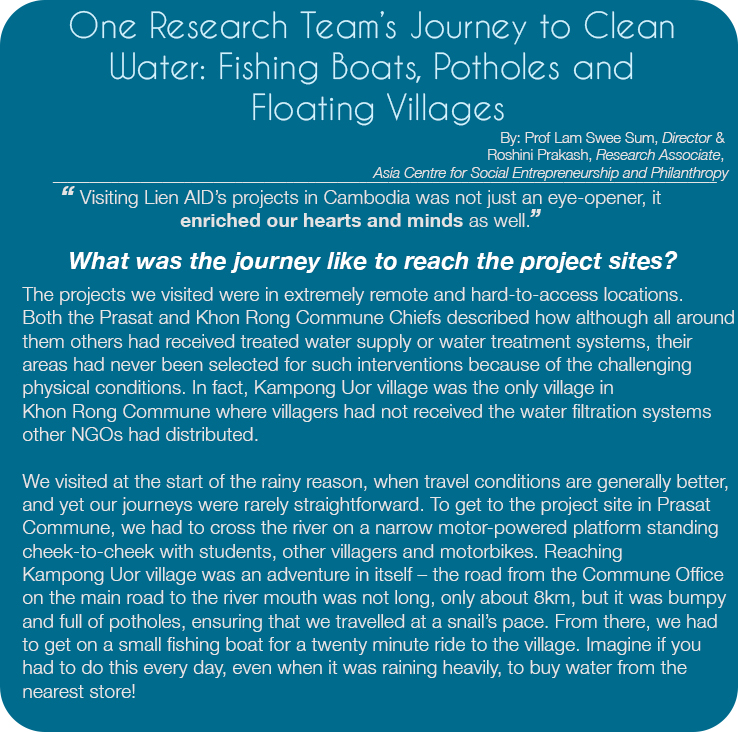Giving My Grandchildren A Better Future
Chheu Teal Village, Peam Chileang Commune
Cambodia
Before becoming their commune’s Community Water Entreprenuers, Mrs. Im Koyhour and her husband Mr. Yan Yoeun were farmers. Farming didn’t give them a predictable income supply: “We only had income from one or two harvests per year and it was unpredictable. This job provides us with a steady income.” Mrs. Im said.
The Community Treatment Plant opened in November 2014, with co-funding from the Prince Albert II of Monaco foundation. Business has been stronger than expected and as a result Mrs. Im took a loan from a local bank to buy more 20-litre bottles for new customers. Today, she is contemplating whether she should add a ledge under the treatment plant to create additional storage space for the bottles, so that they do not take up precious floor space within the plant. Mrs. Im walked us around the space beneath the treatment plant, pointing to where she plans to install the shelf.
She told us that the greatest joy she had from operating the plant was being able to earn enough care for her grandchildren as their parents (Mrs Im’s children) were too poor to do so. Sitting on the raised floor of Mrs. Im’s village house, we meet her grandchildren – 11 year old Pic Ta, 13 year old Van Rachana and 16 year old Van Chiva.
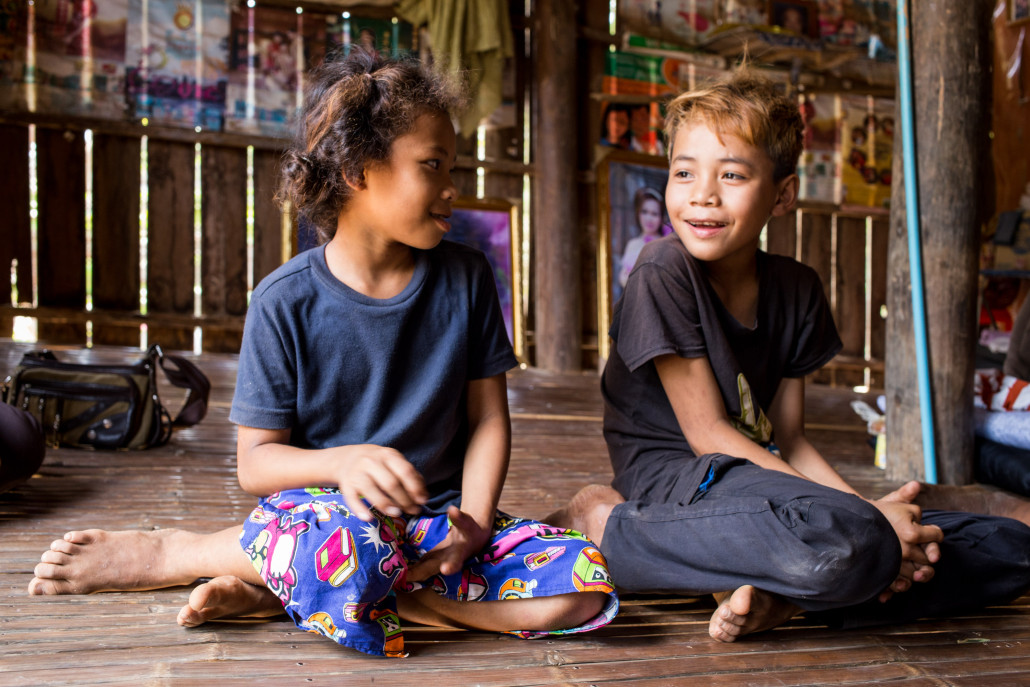
Mrs. Im Koy Hour, CWE and Family. Village Chheu Teal village, Peam Chileang Commune, Tbung Khmum Province Cambodia.
Pic Ta used to suffer from diarrhoea, typhoid, and dengue fever. Even compared with local Cambodian children, she is small for an eleven year old. Since moving in with her grandmother and drinking clean water, her health has improved dramatically. She used to miss school almost every week due to illness but now misses perhaps one day every other month. Brothers Van Rachana and Van Chiva also saw their grades and class attendance improve since they stopped suffering from typhoid and diarrhoea. Van Rachana’s class rank improved two spots from 20/41 to 18/41 while Van Chiva’s grades improved even more, moving eight spots from 28/40 to 20/40.
“People in my community still use well water to cook and clean but I think they understand now that for drinking they should drink treated water instead.” Mrs. Im told us.
This project in Peam Chileang commune, implemented under the Community Water Enterprise programme in Cambodia, was supported with co-funding from the Prince Albert II of Monaco Foundation.

